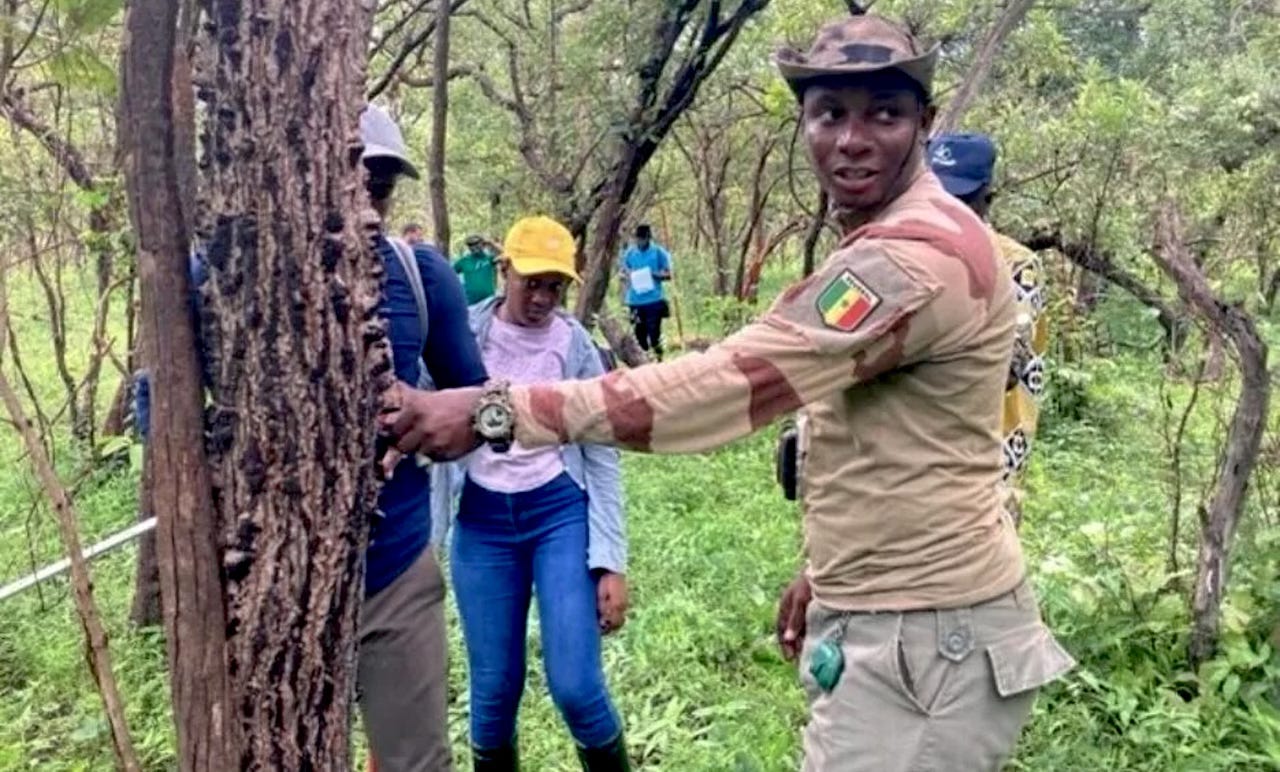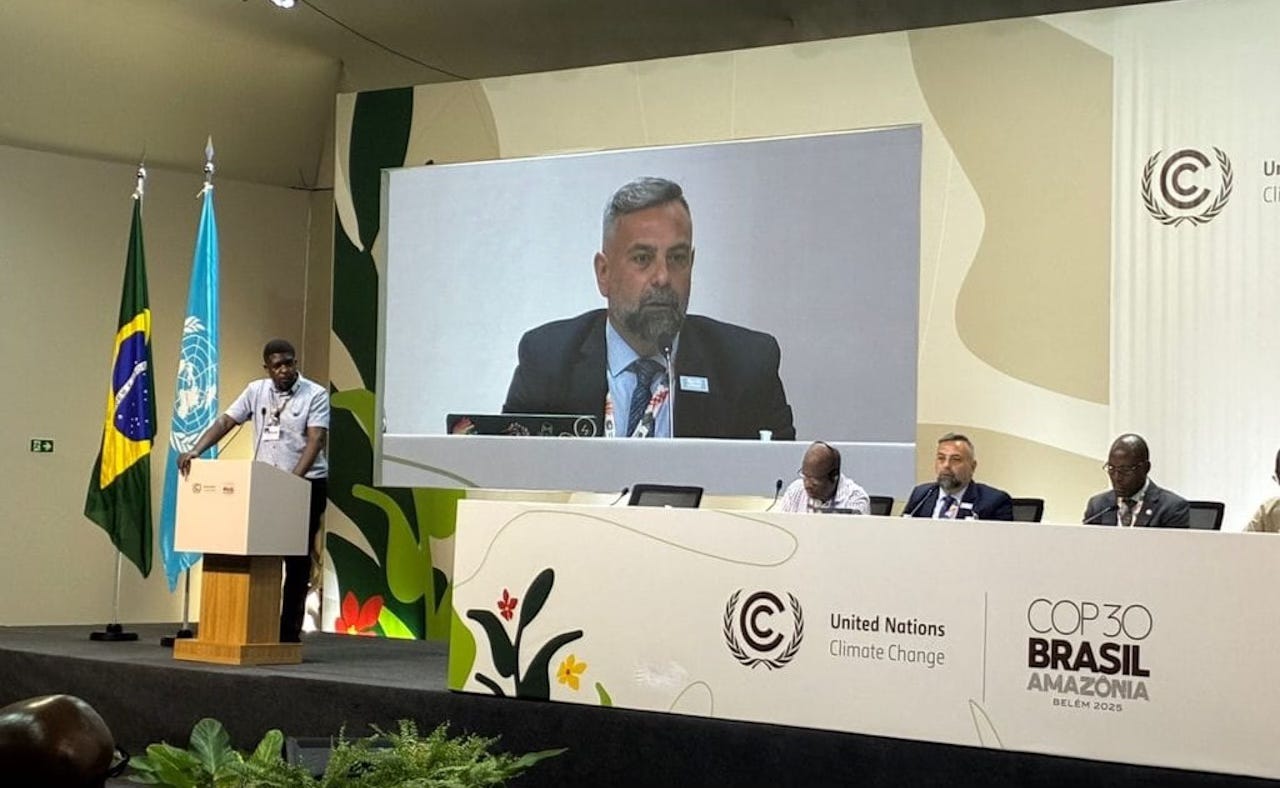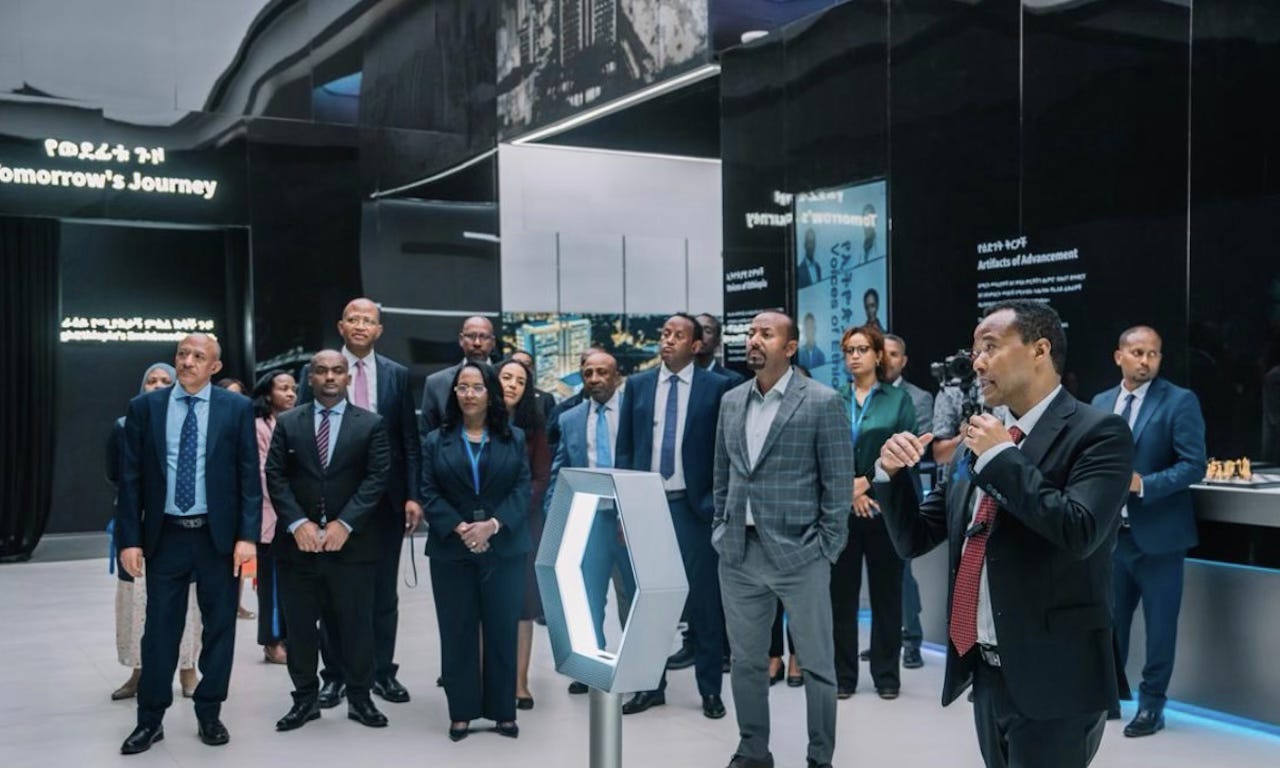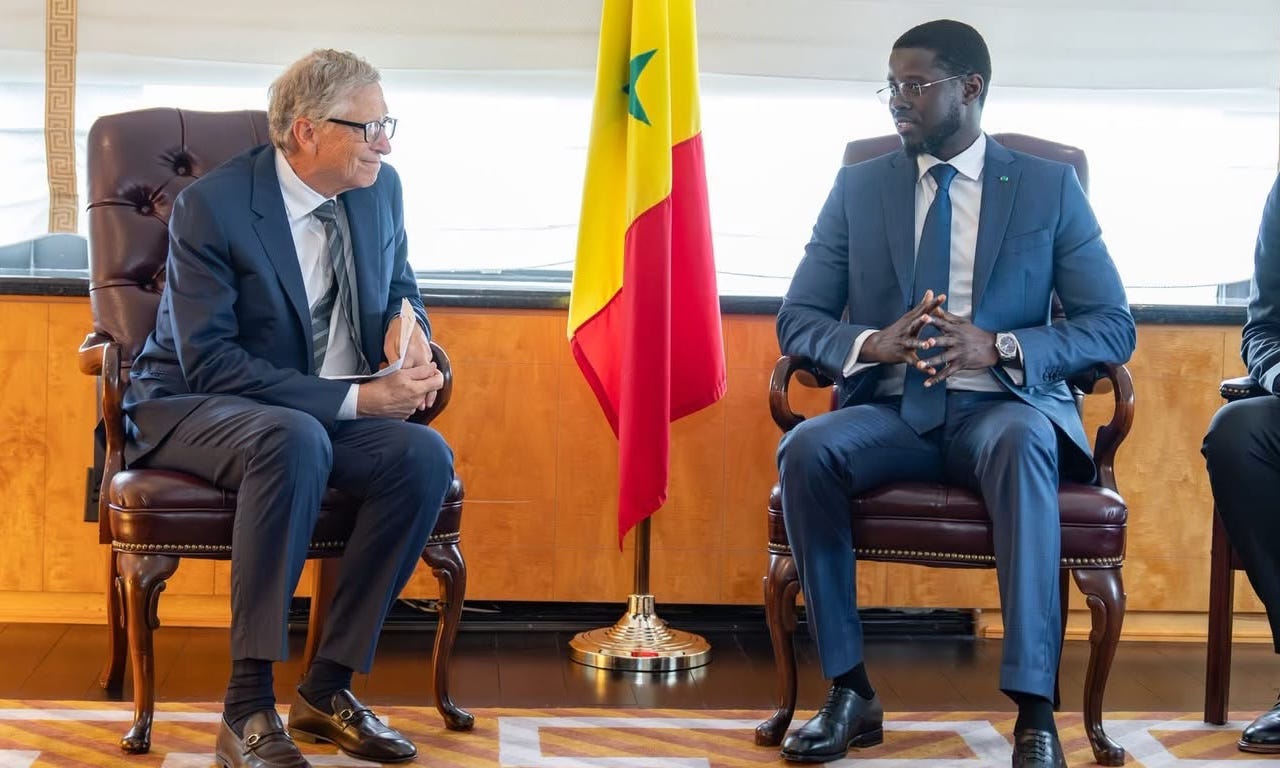AI saves trees & lives across continent; Morocco builds 500MW DC & AI Institute
Weekly News Digest...
Good morning, and welcome to this week’s issue of Africa AI News – Weekly News Digest.
This week we’re leading with application stories - to remind ourselves why care about AI technology. And these applications are really feel-good — conservation, conservation and healthcare for vulnerable communities. From saving Senegal’s forests to combating malaria, smart technologists with the support of global NGOs are changing the world for the better.
This is an important fact to recognise, that global organisations such as the WHO, UN and independent funders make our world better, in the face of bitter attacks by political groups.
On the technology front, there’s some great news out of Libya and Ethiopia, with more local-language AI tools coming to the fore.
On with this week’s issue!
/Roger
Applications
Senegal pilots AI system to map forest carbon stocks
#Senegal #applications — Senegal’s Carbon Lense project, led by German development agency GIZ with data354 and the Ministry of Environment and Ecological Transition, is adopting an AI-based High Carbon Stock Approach to generate automated carbon maps. The system combines satellite imagery with field data traditionally gathered by rangers travelling up to 300km weekly, building new species-level datasets. (BMZ Digital)
Uganda launches offline AI framework for health supply chains
#Uganda #applications — Uganda unveiled Africa’s first offline-capable AI framework for health supply chain optimisation, developed by the International Foundation for Recovery and Development (IFRAD) with the Ministry of Health and Kyambogo University. Designed for low-connectivity areas, it predicts stock shortages, enables informed ordering, and integrates with existing digital systems, aiming to ensure medicines reach remote and refugee-hosting regions. (New Vision)
Malawi launches AI-verified Paris Agreement platform
#Malawi #policy — Malawi unveiled the world’s first AI-driven, blockchain-verified Paris Agreement Implementation Platform (PAIP) at COP30, in partnership with the Green Economy Partnership and TRST01. The platform monitors emissions, verifies climate projects, and automates GHG inventories with scientific precision, creating a transparent, investor-ready system for climate finance and offering a free blueprint for Global South nations. (ESG News)
Mozambique pilots AI-driven malaria prevention
#Mozambique #applications — Unitaid (working with the World Health Organisation) and Japan’s SORA Technology, and have launched a pilot using AI and drones to map mosquito breeding sites and improve malaria prevention in Mozambique. The project integrates digital maps with mobile apps to guide field teams in larvicide application, targeting high-risk areas and engaging communities, particularly women, to strengthen public health interventions. (Unitaid)
Datacentres
Morocco plans renewable-powered data hub in Dakhla
#Morocco #datacentre — Morocco will build the 500-MW Igoudar Dakhla data centre and launch the Jazari Institute for Artificial Intelligence and Energy Transition, backed by new government agreements. Powered entirely by dedicated solar and wind farms, the facility forms part of a regional strategy to strengthen digital infrastructure. (WeAreTech Africa)
Hubs and CoEs
Ethiopia AI institute unveils new hub and startup centre
#Ethiopia #CoEs — Ethiopia’s Artificial Intelligence Institute has moved into the renovated former Ethiopian Broadcasting Corporation complex, creating an advanced workspace that reflects its rapid five-year growth. The Institute is expanding national capabilities across sectors including health, agriculture and cloud infrastructure. A new AI startup centre now supports idea-stage innovators, with 200 entrepreneurs already benefiting. (X post by Ethiopia PM Abiy Ahmed Ali)
Senegal, Gates Foundation agree $10m tech modernisation pact
#Senegal #funding — Senegal has signed a strategic partnership worth over US$10 million with the Gates Foundation to accelerate its Technological New Deal. The agreement will support a universal digital ID system, an AI hub for health and agriculture, and a Delivery Unit to boost transparency and implementation. President Bassirou Diomaye Faye met Bill Gates during the UN General Assembly to formalise the deal. (Senegal Presidency)
LLMs
Gebeya launches AI-powered app builder for Africa
#Africa #applications — Technology platform Gebeya has launched Gebeya Dala, an AI-powered app builder designed for the African context. The platform enables users to create apps by describing them in local languages such as Swahili, Amharic, Hausa, Arabic, Zulu and French. Optimised for mobile devices, it targets students, entrepreneurs and small business owners, aiming to reach one million users across the continent. (Platform Africa)
Libya unveils LIBIGPT, its first national AI model
#Libya #applications — Libya has announced LIBIGPT, the country’s first generative AI system, developed by Smart Co for Technology Projects and Artificial Intelligence. Launched in Tripoli with Minister of Economy and Trade Mohamed Al-Hwej, the project is billed as a step towards a knowledge-based economy, with officials urging stronger support for researchers, curricula reform and wider adoption of modern digital tools. (Libya Herald)
Policy
Algeria forms expert panel to steer digital strategy
#Algeria #policy — Algeria has launched the Scientific and Technical Committee of the High Commission for Digitalization, a 15-member advisory body guiding national digital policy. The committee will review draft laws, advise on trends and support the rollout of “Digital Algeria 2030”, which targets 500,000 ICT specialists and 20% GDP from the digital economy by 2030. (WeAreTech Africa)
South Africa debuts global first AI mental-health framework
#SouthAfrica #policy #mentalhealth — Led by South Africa’s Health Products Regulatory Authority (SAHPRA), together with global health funders PATH and Wellcome, the CARE MH programme launched at the G20 Summit to create the world’s first regulatory framework for AI in mental health. It will set safety, inclusivity and effectiveness standards before tools reach users, and will be tested nationally before expanding across Africa and globally. (PATH)
ECOWAS adopts AI to boost regional crime-prevention systems
#Africa #policy — West African economic group, ECOWAS, will integrate artificial intelligence into its early-warning systems to strengthen crime analysis and prevention across West Africa. Announced at a Dakar workshop, the initiative responds to the region’s high organised-crime rate. Senegal will also launch a National Alert and Response Center to support regional coordination. (Ecofin Agency)
Kenya sets roadmap for ethical AI with multi-stakeholder input
#Kenya #applications — The Ministry of ICT and Digital Economy, in partnership with KICTANet and the British High Commission, has initiated Kenya’s AI Policy Roadmap 2025. The plan prioritises inclusive co-creation, rights-based governance, and an innovation-ready ecosystem. Stakeholders from government, academia, civil society, and the private sector will contribute to shaping AI and emerging technologies policy. (KICTANet)
AI-powered fraud set to rise sharply
#Africa #policy — A survey by the Association of Certified Fraud Examiners and SAS found 77% of anti-fraud professionals report rising deepfake and AI-driven social engineering, with 55% expecting a significant increase in the next two years. Experts warn AI is accelerating fraud sophistication, creating urgent need for public awareness and better preparedness among government and industry. (Engineering News)
Education
Anthropic, Rwanda, and ALX launch Claude-powered AI mentor
#Rwanda #education — Anthropic, Rwanda’s government, and ALX have introduced Chidi, an AI learning companion built on Claude, to reach over 200,000 learners across Africa. Rwanda is training 2,000 teachers and civil servants to integrate Chidi into classrooms, helping students develop coding, critical thinking, and digital skills to address the continent’s widening technology gap. (Ecofin Agency)
Egypt signs protocol to roll out nationwide Digital Pioneers training
#Egypt #policy — The Ministry of Communications and Information Technology, the Egyptian Military Academy and the Tahya Egypt Fund have signed a cooperation protocol to deliver the “Digital Pioneers” initiative. The programme will train 30,095 Egyptians in priority digital fields through fully funded scholarships and industry partnerships, supporting Egypt’s Digital Egypt strategy. Trainees will receive dual accreditation and hands-on technical and leadership training. (TechAfrica News)
Funding
Aydi raises $7.5m to launch ORTH agri-engineer
#Egypt #funding #agriculture — Cairo-based Aydi has secured $7.5 million in pre-seed funding to launch ORTH, described as the world’s first AI agricultural engineer. Backed by Daltex and regional investors, the platform provides precision insights on irrigation, fertilisation and pest control to help farmers counter rising costs and climate strain. (Daily News Egypt)
Events
Tanzania announces TAIC-2026 on digital transformation
#Tanzania #events — The ICT Commission has announced the 9th Tanzania Annual ICT Conference (TAIC-2025), scheduled for 19–23 January 2026 in Dar es Salaam. The conference, themed “Digital Transformation that Drives Social Impacts and Technological Innovations for a Prosperous, Just, Inclusive and Self-Reliant Nation,” will gather ICT professionals, policymakers, academics, and innovators to accelerate Tanzania’s digital transformation agenda. (ICTC)
Past: Ghana to host first national Quantum-AI summit with IBM
#Ghana #events — Flapmax’s FAI Institute and IBM are partnering to launch Ghana’s first Quantum-AI Summit at Palm University College on 21 November (today). The event includes IBM Qiskit Fall Fest sessions, a global hackathon and hands-on quantum computing training. IBM selected the hosts from 600 applicants, with winners gaining access to Flapmax’s hybrid Quantum–AI platform. (TechAfrica News)
[ This newsletter was human seeded and AI grown ]





